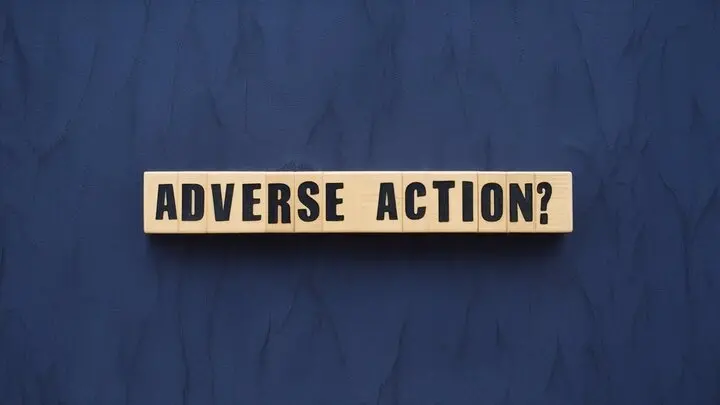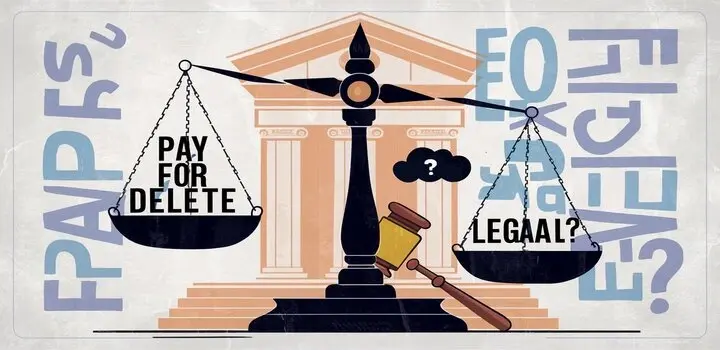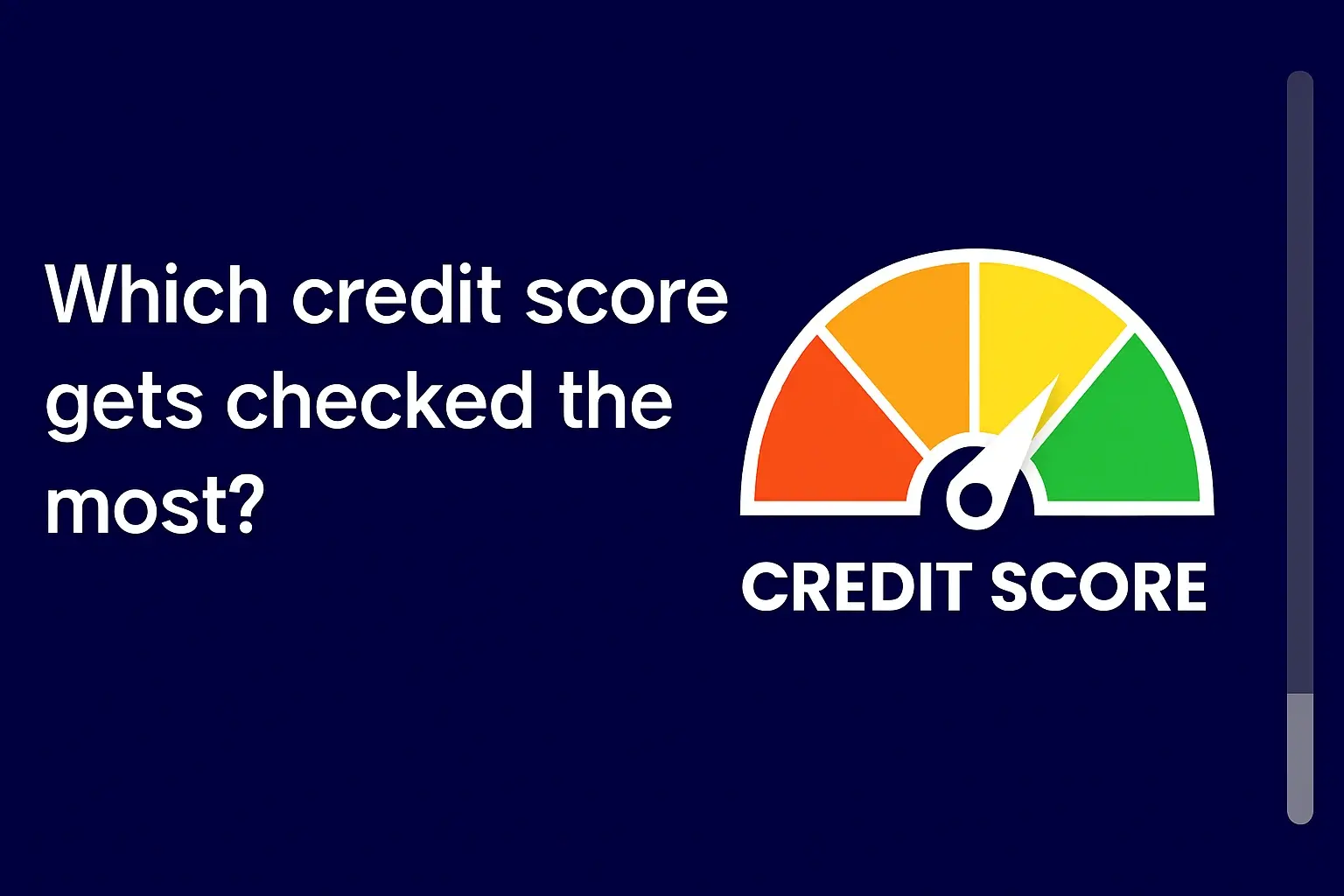-
Posted on: 28 Jun 2024

-
Understanding Adverse Action Letters: An Overview
An adverse action letter, also known as an adverse action notice, is a formal notification that informs an individual they have been denied something they applied for, often based on information found in a credit report or other background check. These letters are legally required in many situations and are designed to protect consumers by providing transparency and enabling them to correct any inaccurate information.
This comprehensive guide will delve into the specifics of adverse action letters, covering when they are required, what they must contain, your rights upon receiving one, and steps you can take to protect yourself and your credit.
When Is an Adverse Action Letter Required?
The Fair Credit Reporting Act (FCRA) is the primary legislation governing adverse action letters. According to the FCRA, a business must provide an adverse action notice when it takes adverse action based in whole or in part on information in a consumer report. This applies in a variety of scenarios, including:
- Credit Applications: Denials of credit cards, loans (mortgages, auto loans, personal loans), or other forms of credit.
- Employment: Refusal to hire, denial of a promotion, or termination of employment based on a background check.
- Insurance: Denial or increase in the cost of insurance coverage.
- Housing: Denial of a rental application.
- Other Transactions: Any transaction where creditworthiness is a factor, such as utilities or cell phone service.
It's crucial to understand that the adverse action must be based, at least in part, on information obtained from a consumer report. This could include your credit score, credit history, criminal record, or other background information.
Examples of Situations Requiring Adverse Action Letters
- A bank denies your mortgage application because of a low credit score reflected in your credit report.
- A potential employer chooses not to hire you after a background check reveals a criminal record (even if the record is inaccurate).
- An insurance company increases your car insurance premium due to points on your driving record reported in a motor vehicle report.
- A landlord denies your rental application because of a history of late payments reported on your credit report.
What Information Must an Adverse Action Letter Contain?
The FCRA mandates specific information that must be included in an adverse action letter. This ensures that consumers are informed about the reasons for the denial and have the opportunity to investigate and correct any inaccuracies. The key components of an adverse action letter are:
- The Name, Address, and Phone Number of the Credit Reporting Agency (CRA): The letter must identify the CRA that provided the information that led to the adverse action. This allows the consumer to request a copy of their credit report from that specific agency.
- A Statement That the CRA Did Not Make the Decision: The letter must clearly state that the CRA did not make the decision to take the adverse action and cannot explain why the decision was made. This emphasizes that the business making the decision is responsible for the denial.
- The Consumer's Right to Obtain a Free Copy of Their Credit Report: The letter must inform the consumer of their right to obtain a free copy of their credit report from the identified CRA within 60 days of receiving the adverse action notice.
- The Consumer's Right to Dispute the Accuracy or Completeness of Information: The letter must inform the consumer of their right to dispute the accuracy or completeness of any information contained in the credit report. This is a crucial right that allows consumers to correct errors that may be negatively impacting their creditworthiness.
Why This Information is Important
The information contained in an adverse action letter empowers consumers to:
- Understand the Reason for the Denial: While the letter may not explicitly state the exact reason, it points you to the source of the information (the CRA) so you can review your report.
- Access Their Credit Report: You can obtain a free copy of your credit report to see the specific information that led to the adverse action.
- Identify and Correct Errors: If you find inaccurate information in your credit report, you have the right to dispute it with the CRA.
- Improve Their Creditworthiness: By correcting errors and addressing negative information, you can improve your creditworthiness and increase your chances of approval in the future.
Your Rights Upon Receiving an Adverse Action Letter
Receiving an adverse action letter can be disheartening, but it's important to remember that you have rights. Understanding these rights can help you take appropriate action to protect your credit and future opportunities.
Key Rights Under the FCRA
- Right to a Free Credit Report: As mentioned earlier, you have the right to obtain a free copy of your credit report from the CRA identified in the letter within 60 days of receiving the notice.
- Right to Dispute Inaccurate Information: You have the right to dispute any inaccurate or incomplete information in your credit report with the CRA.
- Right to Reinvestigation: The CRA is required to investigate your dispute within a reasonable timeframe (usually 30 days).
- Right to Have Inaccurate Information Corrected or Deleted: If the CRA finds that the information is inaccurate or incomplete, they must correct or delete it from your credit report.
- Right to Add a Consumer Statement: If the CRA verifies the information but you still believe it is inaccurate or misleading, you have the right to add a consumer statement to your credit report explaining your perspective.
- Right to Sue: If the CRA violates the FCRA, you may have the right to sue them for damages.
Steps to Take When You Receive an Adverse Action Letter
- Read the Letter Carefully: Understand the reason for the denial and identify the CRA that provided the information.
- Request Your Free Credit Report: Obtain a free copy of your credit report from the identified CRA. You can usually do this online, by phone, or by mail.
- Review Your Credit Report: Carefully review your credit report for any inaccurate, incomplete, or outdated information.
- Dispute Any Errors: If you find errors, file a dispute with the CRA. You will need to provide documentation to support your claim.
- Monitor Your Credit Report: Regularly monitor your credit report to ensure that the disputed information has been corrected or deleted and to identify any new inaccuracies.
- Consider Credit Counseling: If you are struggling to manage your credit, consider seeking help from a reputable credit counseling agency.
Beyond Credit Reports: Adverse Action in Employment
While often associated with credit, adverse action letters are equally important in the context of employment. Employers often conduct background checks on potential and current employees, and if these checks reveal information that leads to a negative employment decision, an adverse action letter is required.
The Employment Context: Pre-Adverse Action Notice
In the employment context, the FCRA often requires a pre-adverse action notice before the final adverse action letter. This pre-notice gives the applicant or employee the opportunity to review the information obtained in the background check and explain or dispute any inaccuracies before a final decision is made.
The pre-adverse action notice must include:
- A copy of the background check report.
- A summary of your rights under the FCRA.
Following the Pre-Adverse Action Notice
After providing the pre-adverse action notice, the employer must wait a reasonable period (typically 5 business days) to allow the applicant or employee to respond. If, after considering the applicant's or employee's response, the employer still decides to take adverse action, they must then provide the final adverse action letter, which includes the information outlined earlier in this guide.
Common Reasons for Employment-Related Adverse Action
- Criminal Record: A criminal history revealed in a background check may lead to a denial of employment or termination.
- Inaccurate Information: Discrepancies between the information provided by the applicant/employee and the information obtained in the background check (e.g., education, employment history).
- Driving Record: A poor driving record may disqualify someone from a job that requires driving.
Protecting Yourself from Adverse Action
While you can't always prevent adverse action, there are steps you can take to minimize the risk and protect your rights:
- Monitor Your Credit Report Regularly: Check your credit reports from all three major credit bureaus (Equifax, Experian, and TransUnion) at least once a year. You can obtain free copies of your reports at AnnualCreditReport.com.
- Maintain Good Credit Habits: Pay your bills on time, keep your credit card balances low, and avoid applying for too much credit at once.
- Review Your Background Check: If you know you'll be undergoing a background check (e.g., for a job or apartment), consider obtaining a copy of your own report beforehand to identify and correct any errors.
- Be Honest on Applications: Provide accurate and truthful information on all applications for credit, employment, or housing.
- Be Prepared to Explain Negative Information: If you have negative information on your credit report or background check, be prepared to explain the circumstances to potential lenders or employers.











